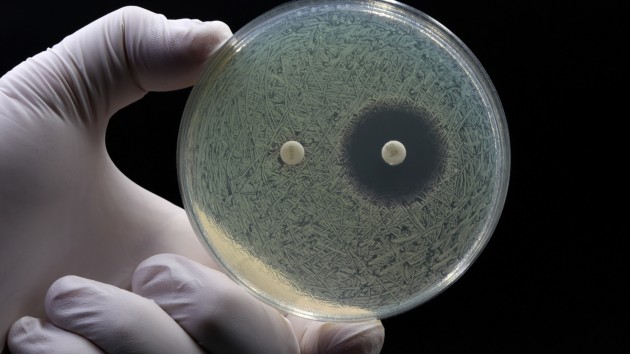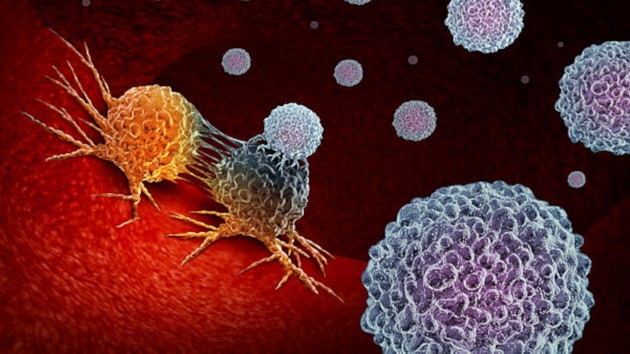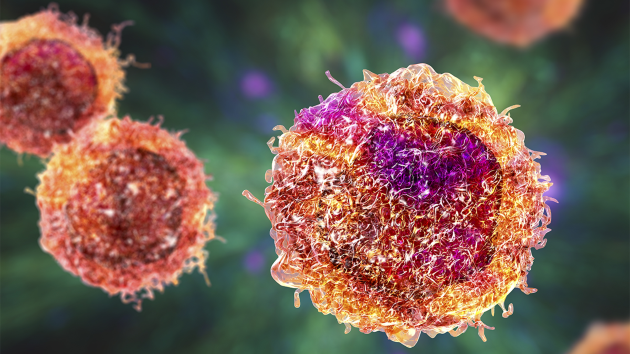Collection |
Collections
Filters
-
Collection Type
-
-
Special |
 All of Us
All of Us
To fully understand human health and allow everyone access to advances in biomedicine, research programmes must include participants from diverse backgrounds.
Image: Danielle Mastrion/All of Us Research Program -
Collection |
 Antimicrobial resistance: a silent pandemic
Antimicrobial resistance: a silent pandemic
With this collection, Nature Communications, Nature Medicine, Communications Medicine and Scientific Reports aim to publish research articles spanning the breadth of AMR and across microbial pathogens (bacteria, viruses, fungi and parasites). This includes, and is not limited to epidemiological monitoring of resistance incidence in clinical and environmental settings, novel strategies aiming to combat or prevent AMR (i.e. drug repurposing, drug synergy treatment, and vaccines), improvements in diagnostics, and subsequently tailored treatment, of drug-resistant infections.
Image: ©TopMicrobialStock / stock.adobe.comOpen for submissions -
Series |
 Women’s health throughout the lifecourse
Women’s health throughout the lifecourse
Nature Medicine presents a series on women’s health throughout the lifecourse.
Image: Marina Spence -
Collection |
 Neoadjuvant immunotherapy
Neoadjuvant immunotherapy
With this Collection, a partnership between Nature, Nature Medicine and Nature Communications, we welcome submissions of primary research papers that focus on neo-adjuvant immunotherapies and related combinatorial approaches (such as radio-immunotherapy or chemo-immunotherapy).
Image: wildpixel / Getty Images / iStockOpen for submissions -
Collection |
 Best Practices in Method Reporting
Best Practices in Method Reporting
Detailed method reporting is essential for research reproducibility and trust in published results.
Image: Sam Whitham -
Collection |
 Nobel Prize in Physiology or Medicine 2023
Nobel Prize in Physiology or Medicine 2023
The 2023 Nobel prize in Physiology or Medicine has been awarded to Katalin Karikó and Drew Weissman for their “discoveries concerning nucleoside base modifications that enabled the development of effective mRNA vaccines against COVID-19”.
Image: Springer Nature/The Nobel Foundation/Imagesource -
Focus |
 Building Healthy Populations
Building Healthy Populations
Nature Medicine presents a special Focus dedicated to population health in the context of new threats and growing inequities.
Image: Marina Spence -
Collection |
 Progress towards the Sustainable Development Goals
Progress towards the Sustainable Development Goals
The year 2023 marks the mid-point of the 15-year period envisaged to achieve the Sustainable Development Goals, targets for global development adopted in September 2015 by all United Nations Member States.
Image: © Springer NatureOpen for submissions -
Collection |
 Innovations in Stem Cell Biology 2023
Innovations in Stem Cell Biology 2023
Stem cell models of development, regeneration, and disease are quickly advancing. New technologies and concepts are continuously combined with existing knowledge to create more realistic systems to improve our understanding of these intricate processes. In this collection, we highlight papers published in 2022-2023 across Nature Portfolio journals on topics including embryonic development and stem cells, reproductive biology, synthetic tissues and embryo models, clinical and translational research and tissue stem cells.
Image: Jean-Baptiste Sibarita, Virgile Viasnoff, and Anne Beghin -
Collection |
 Cancer research
Cancer research
Cancer is a leading cause of death, accounting for nearly one in six deaths worldwide. Many cancers can be cured, especially if detected early and treated effectively.
Image: Kateryna Lon/ Science Photo Library/ Getty Images -
Series |
 Rethinking evidence in medicine
Rethinking evidence in medicine
New therapeutics and health technologies require fresh approaches to demonstrating safety and efficacy.
Image: Marina Spence

 Genome Editing
Genome Editing